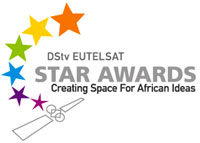MultiChoice Africa and Eutelsat in collaboration with Mindset Learn saw the first edition of the DStv Eutelsat Star Awards draw to an end last week with Ugandan student, Mary Musimire coming out top in the Best Entry Award category.
The awards leveraged off MultiChoice's Resource Centres which have been established in over 1000 schools across Sub Sahara Africa to provide educational channels such as National Geographic, the History Channel and Mindset Learn to students and teachers via satellite. Teachers are trained on how to use this programming to enhance teaching and learning.
Speaking at the gala dinner event, South Africa's Minister of Science and Technology, Naledi Pandor, encouraged TV channels and stakeholders to engage with officials of the department to see how, where and when they could enhance the participation of youth in marginalised parts of this country and those in our fellow-African states in various science and technology initiatives.
And the winners are...
Mary Musimire, a student from Uganda, came out top in the Best Entry Award category with an essay, titled "Looking to the sky for answers", which impressed the judges with its creativity and won a trip for her with her parent/legal guardian to watch a live rocket launch and a visit to Eutelsat in France.
In her closing conclusion in her essay, Musimire aptly pointed out that: "Someday in the future, may an African look at the sky and see beyond the stars, may he see cities growing, industries developing and the environment being reborn, the children being fed. May he see satellites further developing Africa!"
Merit Award winners included Mauritian student Shanen Ganapathee for second best essay entry and Tofunmi Olagoke from South Africa for the second best poster entry. Both win a trip to South Africa to visit MultiChoice Africa and Mindset Learn's satellite broadcast facilities.
Out of over 800 entries from across the continent, the final judging panel reviewed 12 finalists entries which included Chukwuka Ekweani (Nigeria), Sandile Dube (Swaziland), Kidanemarriam Belew (Ethiopia), Vitumbiko Chingwere (Malawi), Rebecca Nalwanga (Uganda) and Oluwaseyi Oloyede (Nigeria) and commented on the extremely high level of these entries.
The judges
The final judging panel members comprised of judging chairman Professor George Smoot, Nobel Prize laureate and astrophysicist; Dr Phethiwe Matutu, chief director of the Department of Science and Technology; Lauren Beukes, novelist and winner of the 2011 Arthur C Clarke Award for her novel Zoo City; Nadi Albino, chief of Education UNICEF and Professor Amadi Ihunwo, head Morphological Anatomy, Faculty of Health Sciences at the University of the Witwatersrand,Johannesburg, all agreed that talent among Africa's students is abounding.
Education is key to Africa's future
Professor Smoot said, "Young people and education are key to Africa's future and science in particular can play a key role in development. I am delighted and honoured to have been involved in promoting science and technology in schools. As jury chairman I was impressed by the quality of the entries and the Top 6 in particular.
Smoot continued, "The winning entry essay showed passion and demonstrated a good understanding of satellites. There was accurate detail of how satellites can be used from managing climate change and natural resources to their uses in urban planning. We liked Mary's out-of-the-box thinking and creative expression. The second best essay entry by Shanen displayed an excellent and in-depth knowledge of satellites. Well done to all the contestants."
Collins Khumalo, president of MultiChoice Africa added, "As a business born and bred in Africa, MultiChoice Africa is keenly aware of the challenges faced by many countries across the continent - specifically in terms of access to ICTs and the development of science and technology.
"With education as a key focus of our corporate social investment programmes, our decision to initiate this competition with Eutelsat and Mindset Learn created a natural synergy which was able to stimulate education and interest around satellites and their possible applications in Africa. An investment in the youth is an investment in the future - and we believe that education in the area of science and technology will make a fundamental difference to this future."
Michel de Rosen, CEO of Eutelsat Communications added that he believes that it is part of Eutelsat's responsibility, as a satellite operator, to deploy infrastructure that enables information and communication to be available to as many as possible.
"There can be no sustainable development in high technology environments without increasing the numbers of engineers, technicians and teachers in order to build an inclusive digital environment. The high level of participation and the quality of the entries in the first edition is encouraging and motivates us to pursue initiatives that can stimulate young African minds to think about new technologies that will drive economic and social progress" continued de Rosen

























